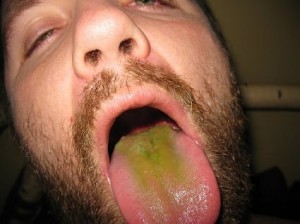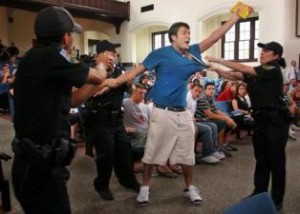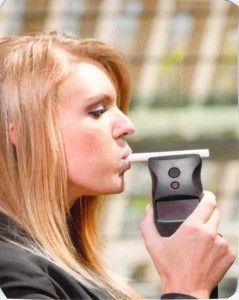A DUI in Another State is the Worst of All Worlds
Getting a DUI in your home state is tough. It’s scary and stressful. Sometimes there’s jail or treatment involved. You almost always get a suspended license when you’re simply charged with a DUI. Getting a DUI in another state is even worse.
Two Ways to Lose Your License
There are two ways to lose your license when charged with a DUI. First, the Administrative Track. Second, the Conviction Track.
Administrative Track
In Oregon and Washington, everyone who drives a car on a public road gives their “implied consent” to do a breath test. That means, for legal purposes, you’ve already agreed to take the test. Whether or not you actually take the test is up to you but your license can be suspended for refusing to take a breath test or taking one and blowing over the legal limit of .08%.
Oregon: Morgan already did a great job covering this in her article Should I Take the Breath Test if Arrested for Oregon DUII?: “First, if you fail the breath test, meaning you blow at 0.08% BAC or higher, then your license will be suspended for 90 days. Second, the results of the breath test can then be used against you at any trial for the DUII charge. … If you refuse the test, you will automatically get a one-year drivers license suspension that will start 30 days after the arrest. If you have been convicted of a DUII in the last five years and refuse to take the test, the suspension will be for three years.”
Washington has a two-tiered system:
For BAC over .08% (.02% for minors): 90 days If it’s your first in 7 years. 2 year revocation if second or more in 7 years. For minors, one year or until 21, whichever is longer.
For a refusal: 1 year revocation if first refusal within 7 years and no prior suspensions for a high breath test. 2 year revocation if second or more refusal or first refusal with a prior high breath test suspension. (For minors, 2 years or until 21, whichever is longer.)
Fighting the Suspension: In both states, you can ask for an administrative hearing. Time is important! You must request your hearing within 10 days of arrest in Oregon and within 20 days of arrest in Washington. If you don’t request a hearing (or if you don’t win the hearing) the suspension will go into effect.
Bad Results
It is very difficult for an out-of-state driver to continue driving during a suspension on the Administrative Track.
Oregon: An Oregon driver, charged in Oregon, can apply for a hardship license. A hardship license – after a 30-day waiting period – will let you drive to, from or for work or school. A driver getting a DUI administrative suspension in another state will not qualify for a hardship permit because they do not have an Oregon license. The Oregon suspension will run its normal course and your home state will suspend your license and, as Washington does, refuse to reinstate until Oregon clears the suspension.
Washington: A Washington driver, charged in Washington, can apply for the ignition interlock license, or IIL. An IIL – with no waiting period – will let you drive any vehicle with an ignition interlock device installed (and some without if for employment purposes, with your employer’s consent). A driver getting a DUI administrative suspension in another state will not qualify for an IIL because they do not have a Washington license. The Washington suspension will run its normal course and your home state will suspend your license and, as Washington does, refuse to reinstate until Washington clears the suspension.
The result in both states is at least 3 months without a license.
What to do?
If you’re an out-of-state driver, you have to fight the suspension. Otherwise, you’re in for a long time without any driving. You need an attorney that knows the law, how it interacts between the states and that will help you through the process. Give us a call so we can get to work on your case.
Next time, the Conviction Track.






